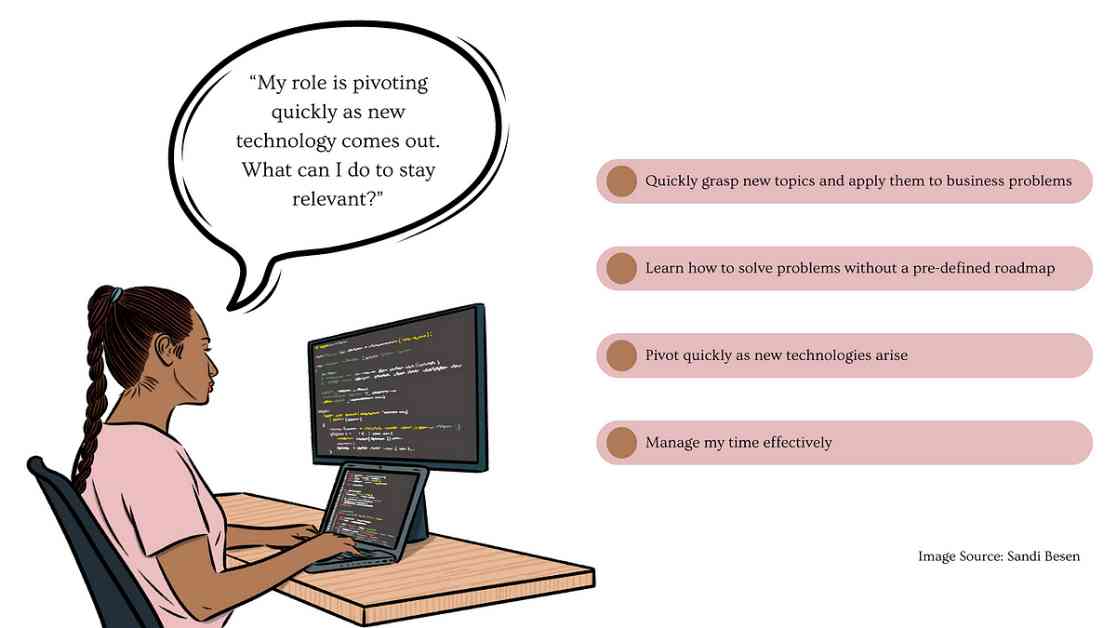The Role of AI Engineers and Data Scientists in Shaping AI Ecosystems
The field of AI engineering and applied data science has experienced a significant transformation in recent years, with the roles of professionals in these areas evolving to meet the demands of an ever-changing AI landscape. As someone deeply embedded in this industry, I have witnessed firsthand the shifts in responsibilities and skill sets required of AI engineers and data scientists. In this article, I will explore the changes that have taken place and offer insights into the future direction of these roles.
The Era of Prompt Engineering and Chatbots
In 2023, the focus of AI engineers and data scientists was largely on developing chat-based solutions. The interaction between humans and AI systems was often limited to a simple question-and-answer format, with users posing queries and the AI providing responses in a back-and-forth manner. This pattern of interaction required a deep understanding of prompt engineering, as well as the ability to monitor for potential errors and adjust parameters for optimal performance.
At the time, companies were eager to integrate AI into their operations, either out of a desire to gain a competitive edge or due to pressure from executives and investors. However, off-the-shelf AI models often fell short in terms of understanding a company’s unique processes, domain knowledge, business rules, and documentation. To address this gap, the concept of retrieval augmented generation (RAG) was introduced, allowing AI systems to access contextual information to enhance their responses.
The role of applied data scientists working with generative AI models shifted from simply building custom solutions to optimizing the performance of cutting-edge technologies. This required a deep understanding of the latest advancements in AI and the ability to extract the best results from these innovations.
The Impact of Open-Source Shift and the Rise of Action-Driven AI
The emergence of competitive open-source models that rivaled industry giants like OpenAI’s GPT-3.5 opened up new possibilities for AI engineers and data scientists. With access to more flexible and powerful tools, professionals in this field were able to develop solutions that pushed the boundaries of what AI systems could achieve. Model orchestration libraries such as Semantic Kernel, Autogen, and LangChain gained popularity, expanding the role of AI engineers beyond traditional model building.
The game truly changed when AI systems began interacting with external systems. The introduction of the Modular Reasoning, Knowledge, and Language (MRKL) system in 2022 marked a significant milestone in the evolution of AI, combining language models, external knowledge sources, and discrete reasoning to enable AI systems to take real-world actions. By 2023, tools like ChatGPT plugins and semantic functions allowed AI models to interact with internal systems and perform tasks beyond basic conversational exchanges.
The Rise of Agentic AI
The transition from chat-based systems to action-driven AI paved the way for the rise of Agentic AI, which expanded the capabilities of language models and challenged AI engineers to think more creatively. The complexity of designing systems that involved multiple AI agents working together posed new challenges for professionals in this field, requiring them to make critical decisions about how to structure agent teams, define conversation patterns, and equip agents with the tools needed to succeed.
The shift towards Agentic AI blurred the lines between the responsibilities of AI engineers and data scientists, demanding a combination of development skills and creative problem-solving abilities. This new paradigm required professionals to not only understand the inner workings of AI models but also to design and implement systems that could interact with the outside world and produce tangible results.
Speculating on the Future Skills for AI Engineers and Data Scientists
As the field of AI engineering continues to evolve, the skills required of professionals in this space are also changing. The future success of AI engineers and data scientists will depend on their ability to adapt quickly to new technologies, solve complex problems without a roadmap, and manage their time effectively. The most successful professionals will be those who can pivot as new advancements arise and approach challenges with a creative mindset.
In conclusion, the role of AI engineers and data scientists is evolving at a rapid pace, driven by advancements in technology and changing industry demands. The ability to adapt, innovate, and think critically will be essential for professionals in this field to stay ahead of the curve. As we look towards the future of AI engineering, it is clear that the landscape will continue to shift, presenting new opportunities and challenges for those willing to embrace change.






















